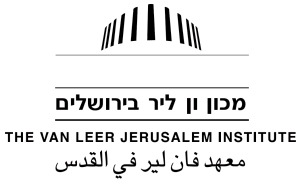When Malka Marom, a Canadian-Israeli musician and broadcaster, walked into a destitute Toronto night club in 1966, she was swept off her feet. The music, played by Joni Mitchell, mousy-looking and still unknown, was unlike anything she had heard before. Soon thereafter, they became lifelong friends; Marom’s book Joni Mitchell in Her Own Words is a compilation of conversations they had over a 40-year period. She is now working on another book, featuring conversations with another great Canadian singer-songwriter: Leonard Cohen.
Sponsors
This season of the Tel Aviv Review is made possible by The Van Leer Jerusalem Institute, which promotes humanistic, democratic, and liberal values in the social discourse in Israel.
Show Your Support on Patreon
Receive extra segments, book discounts, and other patron-only perks by supporting the show on Patreon. Click to find out how a handful of dollars a month can help.
Photo: Malka Marom








“…a prophet receiving music, wisdom and creativity…”
–one of the interviewers
“every poet is a true prophet…writing poetry is akin to prophecy.”
–Malka Marom, in response
—
Believe it or not (and it shall be not) I had thought, just before listening to this podcast, that I wanted to somehow be able to say at cast’s end that poetry and music are our secular religion. Not that they are captured from religion, but, rather quite in line with an earlier interview in this series, that what we now consider religious is not at all limited to that forum, for our present distinction between the secular and religious is only a few centuries old, two, three, three and a half. So not secularized religion, which would be captured from religion; nor sanctified secularity, a reverse capture. If anything, that which was before today’s secular/religion distinction in the West, the Church Catholic, restricted the range of acceptable, even considered, poetry by forcing very concrete themes for admission into the heard world. The advent of the secular broke those binds, creating a mix of opponents in tense lines of poetry, needing the essence of what was being sundered, yet refusing the old form. We recover ancestral poetry by cutting ourselves from the institutional anchors of our world–not the world, for these institutions are historically bound.
Making poetry ancestral may be liberating, but pause. A claim of prophecy, which is what interviewer and interviewee make, is a claim of exteriority. The interviewer’s use of Mohammad is quite good here, for Mohammad purportedly was not in control of what he said (so he says, at least in hadith). While liberating for the speaker/creator–I say what I say (parallel cadence to “I am what I am”)–it also indicates a powerlessness as to the referent and consequences of what is spoken.
Prophecy portends causation, and causation binds. Where the binding, the causation? As a secular would have been evolutionary biologist, I say in language learned in the human community, or rather communities, which fits something else said by Marom–that ideas and lyrics are naturally vulnerable to charge of plagiarism, to which an interviewer replies that is the nature of the creative process. The charge of plagiarism in some sense holds because the speaker is not in an important way the creator. Language is a giant mess of strategies which inhabit people, using them, being used to enable that end, who using and used merely where you pause in the sequence. I have come to see what many consider the birth of modern philosophy, Descartes’ “I think therefore I am,” a foundational error: no one thinks alone, for language inherently cannot allow it. The solipsist would be denuded of language which means there would be nothing to say, even to, er, himself. We do not, then, escape the world through poetry and music; at best, we escape present institutions or instaniations, but for our escape to sustain meaning beyond ourselves must somehow instaniate somewhere else, which is to say that meaning lies exterior to ourselves, in the acceptance and use of others. That word “use” again. Poetic liberation is a new spell, a binding that would be. But too many spells spoil the broth.
Marom tells how Joni Mitchell (the Christ not in the TLV1 studio) once left the stage mid-act, feeling the audience was not listening. Cat Stevens did that as well, not perhaps because he heard no hearing, but because being there no longer mattered. Stevens later become Yusuf Islam, Believer, trying to capture Revelation for a life Postmodernity is above all information storage, retrieval and communication at such ease of speed that there seems always a new next, the Facebook scroll worthy of idol for worship to that end, but a remote control for screen or audio will do nicely too. Mohammad, it is said, would tremble, fall down, bray like a camel when not God but an angel of God came to recite–an ending, terminus, perhaps nicely distinguished from the left pluralism of our global days. I wonder how many hope for a braying lasting their days. For if I can turn the station, scroll down, whatever I encounter can be turned from, scrolled away too. What we now have in religion is a stopping of the scroll, requested or not–but that was not what Church Catholic was, for then there was no scrolling in any case. Religion today is postmodern reaction, not recovery of Church Catholic, even in a fundamentalist church.
I continue to be amazed at how the Tel-Aviv Review links themes across podcasts without even saying so, evidence of their own linkage to the world, the bridge they build in studio. There is a core coherence here, perhaps nurtured by the left’s crisis in Israel. I find it singular.